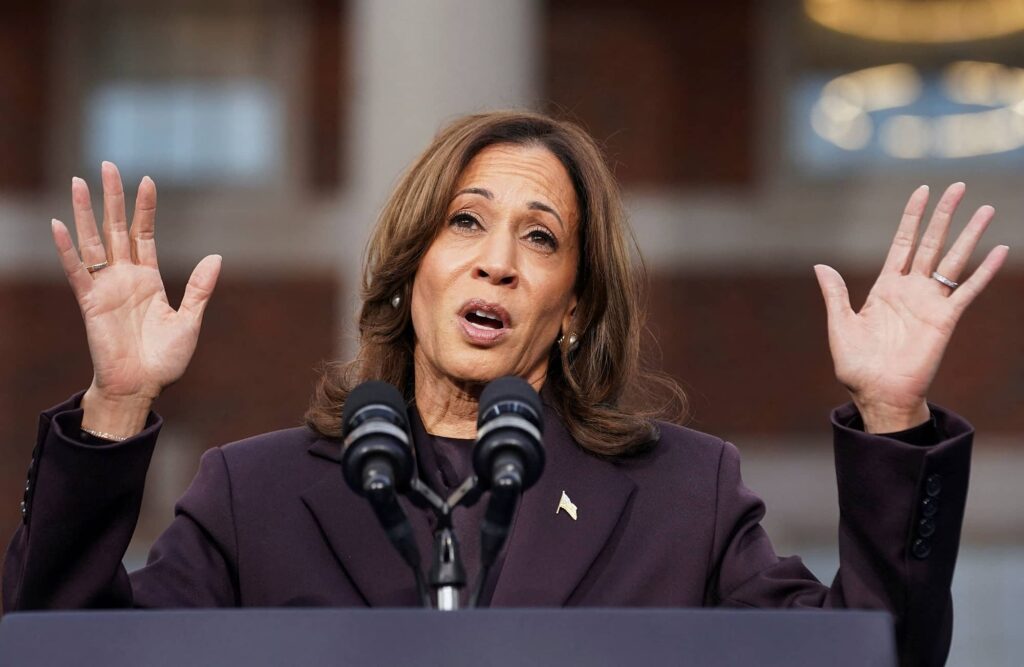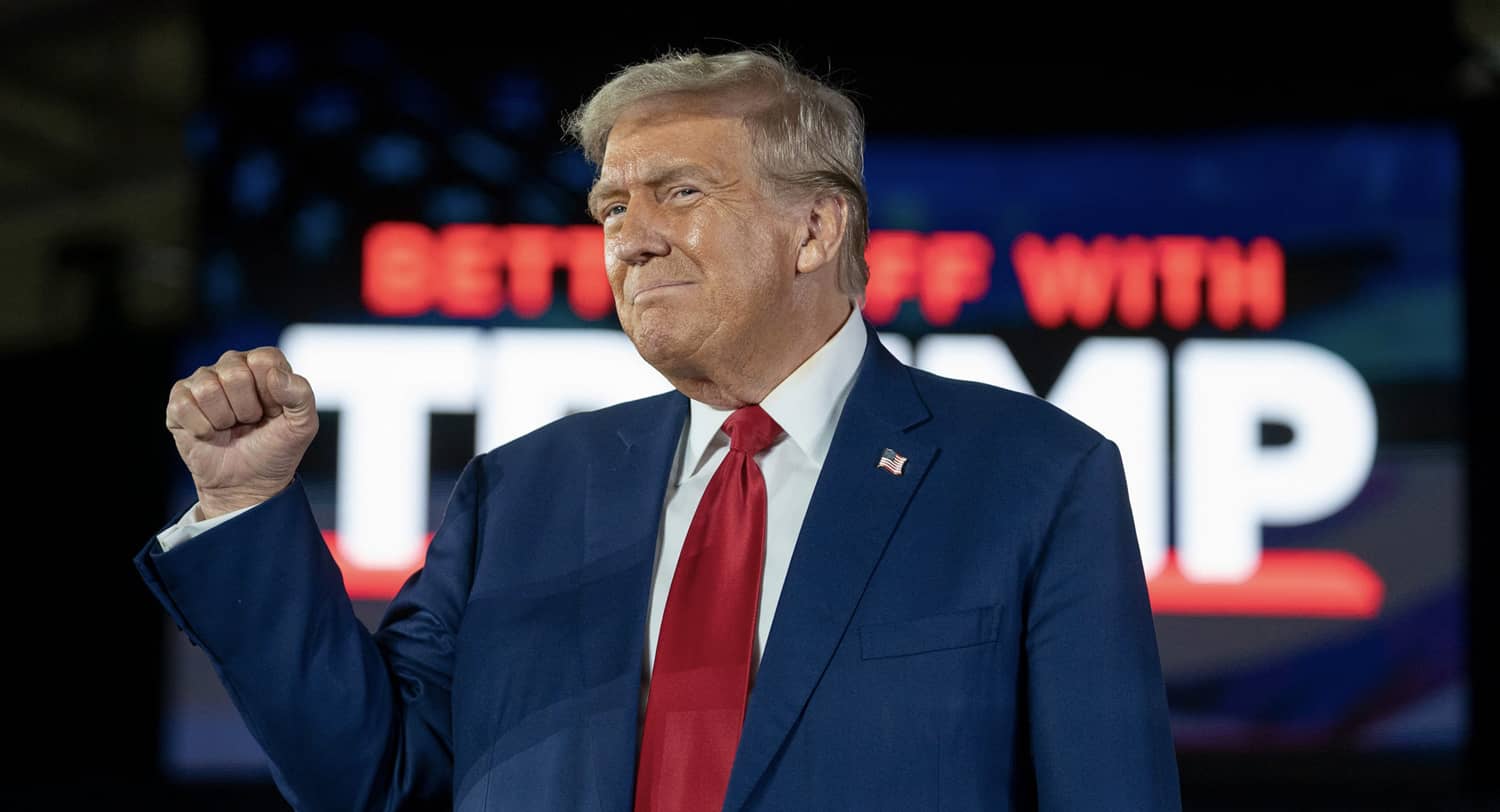Donald Trump’s victory by an unassailable margin has shocked America’s bicoastal liberal intelligentsia. A majority of media pundits, whether talking heads or press columnists, could not imagine that the former and now future president could do anything more than eke out a narrow electoral victory. They simply could not comprehend how Americans other than Trump’s MAGA base could vote for the man.
A good part of this reaction to Trump’s victory is utter disdain for so-called ordinary Americans, especially white males, the majority of whom do not have a college education. Liberal Washington Post columnist Ruth Marcus sums up both the disdain and the arrogance behind it. A graduate of Yale and Harvard Law School, Marcus stated: “it seems to have turned out that the smartest bet that Trump & Co. made was to focus on getting men away from their video games and to the polls.” Which males did she have in mind? Not presumably Ivy League-educated men; she seems to think that only Hillary Clinton’s “deplorables” play video games.
Voters’ concerns with the economy and immigration certainly drove Trump’s victory, the Republican return to Senate majority and, at the time of writing, a likely majority of the House of Representatives as well. Democrats insist the voting public simply did not realize that the economy had improved under the Biden Administration’s leadership, which indeed it had in a macro sense. It did not, however, result in lower gasoline prices, a major concern for Americans who drive cars, which is to say, most of them. Nor did it result in lower food prices or in more available housing.
Harris did not inspire any confidence regarding her proposals for alleviating the economic woes of millions of Americans. Indeed, her plan for an industrial policy was panned even by more liberal economists. Industrial policy – government efforts to control sectors of the economy by means such as subsidies, tax incentives and a variety of regulations – have rarely achieved their objectives in other countries, or for that matter, in the United States.
Harris likewise did not convince voters that she had a real solution to the challenge of illegal immigration that continued to plague the country throughout the Biden Administration’s tenure. Her own record for dealing with the issue was at best mixed. Biden had assigned her to focus on immigration policy, especially to work with Central American states that were the greatest source of illegal migrants. Yet Harris only visited these countries once, and generally demonstrated almost no aptitude for developing ideas as to how to stem the flow of these migrants. It is noteworthy that Trump appears to have won about 40 percent of the Hispanic vote; it appears that Americans of Hispanic origin are as opposed to illegal immigration as their non-Hispanic neighbors.
Harris’s prime campaign issue was that of women’s reproductive rights. Indeed, even after it was clear that she had lost the election, she reiterated her support for a liberal abortion policy in her concession speech, which, incidentally, she delayed giving for many hours after the election outcome was undeniable. Yet it is not at all clear that abortion was as important an issue as she and the Democrats thought it was. Harris certainly did not receive anything like the support from women that she had anticipated. On the other hand, Harris’ support for transgender rights may well have alienated suburban “soccer moms,” who would not want their children to compete in sports activities with transgender children. Among these women, this concern may well have outweighed their support for women’s “choice.”

Harris’ complete silence on the prevalence in industry and especially in academia of Diversity, Equality and Inclusion programs, a favorite of progressives, likewise alienated many Americans who felt that they suffered from the discrimination that these programs engender.
Donald Trump’s attitudes on all of the aforementioned issues have stood in sharp contrast to those of Harris. They likewise have differed sharply on international issues. Trump is a strong advocate of tariffs, especially directed at China. Yet it is not clear that whatever economic measures he might take against China will be matched by support for Taiwan’s efforts to deter a Chinese invasion. Similarly, he has little sympathy for Ukraine, and promises to find a solution to the war, which probably involves having Ukraine cede to Russia both its four eastern oblasts and Crimea.
Trump is very unhappy with America’s NATO European partners. He wants them to increase their spending on defense until they have reached a level of three per cent of gross domestic product (GDP). NATO’s current objective is two per cent and not all of the allies have reached even that level. However frustrated Trump may be with the Europeans—and he also has little love for the European Union—it is unlikely that he can pull America out of the Alliance. The 2024 National Defense Authorization Act prevents a president from withdrawing from NATO without the approval of two-thirds of the Senate, which Trump will not be able to commandeer, even from the soon to be Republican-dominated Senate. Still, Trump has other means to undermine NATO cohesion. These include withdrawing from, or at least boycotting, the activities of NATO’s Integrated Military Command, refusing to name American military leaders to senior NATO military and civilian positions, and cutting back on American financial support for the organization.
On the other hand, Trump can be expected to continue the strong support for Israel that he demonstrated time and again during his first term in office. While he has on occasion had an uneasy relationship with Prime Minister Benjamin Netanyahu, it has not been nearly as bad as Bibi’s relations with Barack Obama or for that matter, Joe Biden. Moreover, Trump and Netanyahu currently seem to be on good terms, and their policies regarding Hamas, Hizbullah and Iran mesh well, though Trump hopes to resolve the Gaza crisis as quickly as he plans to resolve Ukraine.
Trump is likely to pursue the same hard line towards Iran that marked his first administration. That means the return of “Maximum Pressure,” and thereby drastically reducing the country’s GDP. Moreover, should Iran launch another missile and drone attack against Israel, Trump is likely to provide Jerusalem whatever military support it needs, including weapons, ammunition or operations both from the ground and the air to supplement Israel’s own defenses. Indeed, given his hostility to the Ayatollahs, Trump could go even further, allowing American combat operations alongside those of Israel.
Trump was angry during the campaign that he was not winning the support of Jewish Americans. Indeed, 79 percent of Jewish voters appear to have supported Harris, according to one exit poll. Yet the percentages were more than reversed with regard to Orthodox Jews. Trump garnered at least an equal if not higher percentage of voters from that community, who count David Friedman, Trump’s ambassador to Israel, as well as Jared and Ivanka, among their number.
Trump sees himself as the father of the Abraham Accords, and given his relationships with Saudi Arabia (as well as those of his so-in-law Jared Kushner) he may well press Riyadh to join the Accords sooner rather than later. Trump also has many other friends in the region. For example, the King of Morocco was among the first to congratulate him on his electoral victory. Morocco, like Israel, has reasons to thank the president-elect. It was during his first term that the United States finally recognized the Western Sahara as part of Morocco— in exchange for which Rabat joined the Abraham Accords.
Some of America’s Arab friends, like the United Arab Emirates, are apprehensive that Trump will show more favor to the Saudis than to anyone else. On the other hand, none of the Emiratis, Saudis or, for that matter, Bahrainis will shed many tears if Trump presses the Qataris to close the Hamas office in Doha, and indeed, to stop funding the terrorists. The Qataris have some leverage over Washington because they host the massive Al-Udeid Air Base. Yet they need to recall that the base is only located in their country because the Saudis wanted US forces out of King Khalid Air Base. Should the Qataris prove uncooperative, Trump could order the Air Force to relocate yet again.
Trump is widely seen as a transactional figure, and he might well alter many of his foreign policy stances. To some extent, his policies will be a function of what his advisors propose. While many names are already being bandied about for the roles of Secretary of State, Secretary of Defense and National Security Advisor in particular, such speculation is entirely worthless. Presidents at times choose top officials about whom those inside the Washington Beltway know very little. And Trump has many business friends and acquaintances very much outside the Beltway. Nevertheless, it is safe to say that the one country that probably can count most on Trump’s support is Israel. His daughter and son-in-law will see to that, even if neither of them plays an official role in the second Trump administration.

